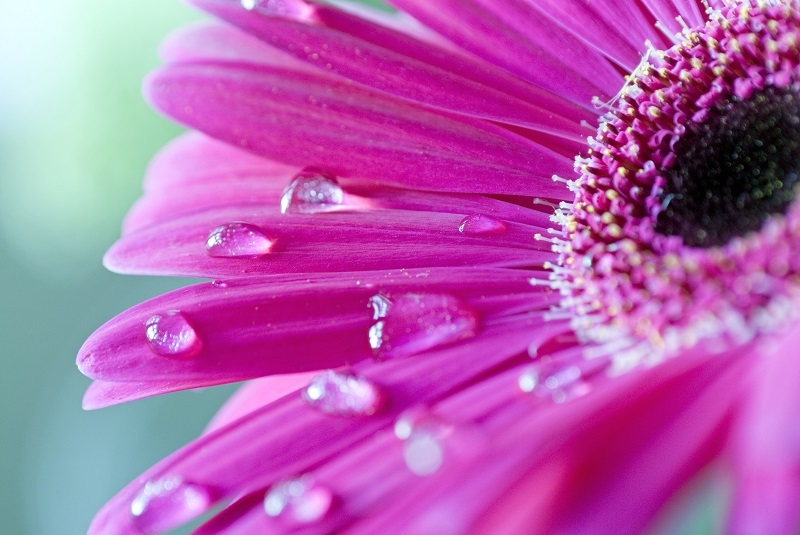Protect the beauty of your floral arrangements with care
Posted on 18/08/2025
Protect the Beauty of Your Floral Arrangements With Care
Floral arrangements bring vibrant beauty, freshness, and a touch of nature into our lives. Whether crafted for a wedding, decorating a home, or brightening a workplace, flower arrangements are cherished for their elegance. However, maintaining this allure requires proper care and attention. In this comprehensive guide, discover the best techniques and secrets to protect the beauty of your floral arrangements with care and extend their life for as long as possible.

Understanding Floral Arrangements: The Basics
What Makes a Beautiful Floral Arrangement?
The appeal of a floral arrangement lies in its color harmony, structural balance, and the freshness of the blooms. A well-designed flower arrangement can serve as a centerpiece, a gift, or an expression of emotions. But no matter how perfectly arranged, without proper protection and maintenance, even the most stunning bouquet can lose its charisma quickly.
Common Challenges to Flower Longevity
- Wilting caused by dehydration or exposure to heat
- Bacterial growth in the water or on stems
- Petal browning from bruising, air drafts, or sunlight
- Early bud drop triggered by improper handling
- Fading scent due to low humidity or air pollution
Protecting your floral arrangements with care is all about prevention and proper management.
Best Practices for Preserving Flower Arrangements
1. Start with Fresh Flowers
Freshness is everything. When purchasing or cutting flowers for your arrangement, always choose stems with tight but mature buds, vibrant leaves, and no blemishes. Ask your florist about the freshness and expected lifespan of each type. A little research will help you select blooms that naturally last longer, like chrysanthemums, carnations, or lilies.
2. Use a Clean Vase and Fresh Water
Hygiene is critical in prolonging the beauty of your flower arrangements.
- Wash vases or containers thoroughly with soap and hot water to remove any bacterial residue.
- Rinse stems under running water before arranging them.
- Fill the vase with fresh, room temperature water and replace it every other day, or even daily if possible.
3. Use Floral Preservatives - Nature's Secret Weapon
Add a commercial, florist-recommended flower preservative to the vase water. These solutions typically contain a blend of sugar (for nutrition), bleach (to inhibit bacteria), and acidifiers (to help water uptake). If you don't have preservative, you may use:
- 1 teaspoon sugar
- 2 teaspoons lemon or lime juice
- 1 teaspoon household bleach
- Mix into 1 liter of fresh water
4. Mind the Temperature and Sunlight
Keep floral arrangements away from:
- Direct sunlight
- Heating vents or radiators
- Air conditioners and cold drafts
- Fruit bowls (which release ethylene gas and speed up fading!)
5. Keep Stems Trimmed and Arranged Properly
Every 2-3 days, take a moment to:
- Remove wilting or dead flowers to protect the arrangement's aesthetic.
- Trim stems at a 45-degree angle, under water, to open up water-absorbing cells.
- Re-arrange if necessary so remaining flowers stay supported and visually appealing.
6. Hydrate and Nourish
Spritz delicate petals with water to maintain humidity, especially in dry climates or indoor heated spaces. Hydration keeps colors vivid and textures lush. For arrangements in floral foam, check moisture daily and add water as needed.
7. Avoid Touching Petals and Leaves Frequently
Oils and dirt from fingers can bruise or stain delicate flowers. Handle arrangements gently and as little as possible to preserve the natural allure of your blooms.
Special Tips for Different Types of Floral Arrangements
Protecting Cut Flower Bouquets
For hand-tied bouquets or vase arrangements, follow these extra steps:
- Unwrap the flowers as soon as possible to allow breathability.
- If using floral foam, keep it saturated and change water regularly if possible.
- Display arrangements away from direct air currents.
Caring for Potted Flowering Plants
Unlike cut bouquets, potted arrangements need ongoing care:
- Water plants according to their species' needs.
- Check drainage holes to prevent root rot.
- Rotate pots to ensure even light exposure and prevent leaning.
Seasonal and Dried Floral Arrangements
Dried flower arrangements are trendy for their rustic charm and longevity.
To protect their natural color and shape:
- Keep away from sunlight and damp areas.
- Dust gently with a soft brush or a hair dryer on a cool setting.
- Do not spray with water, as moisture can encourage mold growth.
Expert Secrets for Enhanced Flower Care
The Magic of Proper Placement
Strategic placement can make or break your flower arrangement's lifespan. Entryways, coffee tables, and sideboards are popular spots--make sure these locations aren't exposed to drafts or direct sunlight. If you must display arrangements outdoors, bring them in during high temperatures or inclement weather, and showcase them at special moments for maximum impact.
Understanding Water Needs by Flower Type
Not all blooms have the same requirements. Hard-stemmed flowers (like roses) need deep water, while soft stems (like tulips) do better in shallow water. Always consult a care guide or your florist for specific instructions tailored to your arrangement's flowers.
Be Gentle With Fragrant Varieties
Scented flowers are more sensitive to handling. Avoid touching petals frequently, and maintain steady humidity to keep fragrances strong. If displaying in a large room, group similar scents for a harmonized effect rather than combining too many strong aromas.
Quick Troubleshooting for Common Arrangement Issues
- Drooping stems: Recut stems under warm water and provide a fresh solution.
- Browning petals: Remove affected parts and keep arrangement cooler.
- Cloudy water: Change water, clean the vase, and add new preservative immediately.
- Unpleasant odor: Usually caused by decaying stems or bacteria; remove debris and sanitize the vase.
Sustainable Practices: Protecting Floral Beauty and the Environment
Caring responsibly for your flower arrangements also means making eco-friendly choices:
- Choose locally grown, seasonal flowers to reduce environmental impact.
- Reuse vases, containers, and ribbons to minimize waste.
- Compost spent flowers and greenery after their display life has ended.
- Consider organic flower food or natural solutions to protect both blooms and water systems.

The Joy of Seeing Flowers Thrive
There's immense satisfaction in watching an artfully designed bouquet last day after day, retaining its fragrance and color. By following simple steps for caring for flower arrangements with diligence and love, you can enjoy your blooms to the fullest. Encourage family and guests to admire flowers with their eyes (not fingers!) and take pride in your display.
Conclusion: Protect and Celebrate Your Floral Arrangements
Floral arrangements are more than decorations--they are living works of art that uplift our senses. The key to protecting their beauty lies in consistent care, mindfulness, and smart practices from the moment you receive or purchase them. From correct water management, proper placement, gentle handling, and a touch of creativity, your arrangements will continue to inspire and delight.
With these comprehensive tips, you can confidently protect the beauty of your floral arrangements with care and make your environment bloom with lasting elegance.
For more inspiration and flower care advice, bookmark this page and revisit whenever you bring a new arrangement home!
Latest Posts
The Secret Garden of Peony Symbolism: Colors and their Stories
What Does Your Birth Flower Say About Your Character
Red Roses and Valentine's Day: A Love Affair Explained





